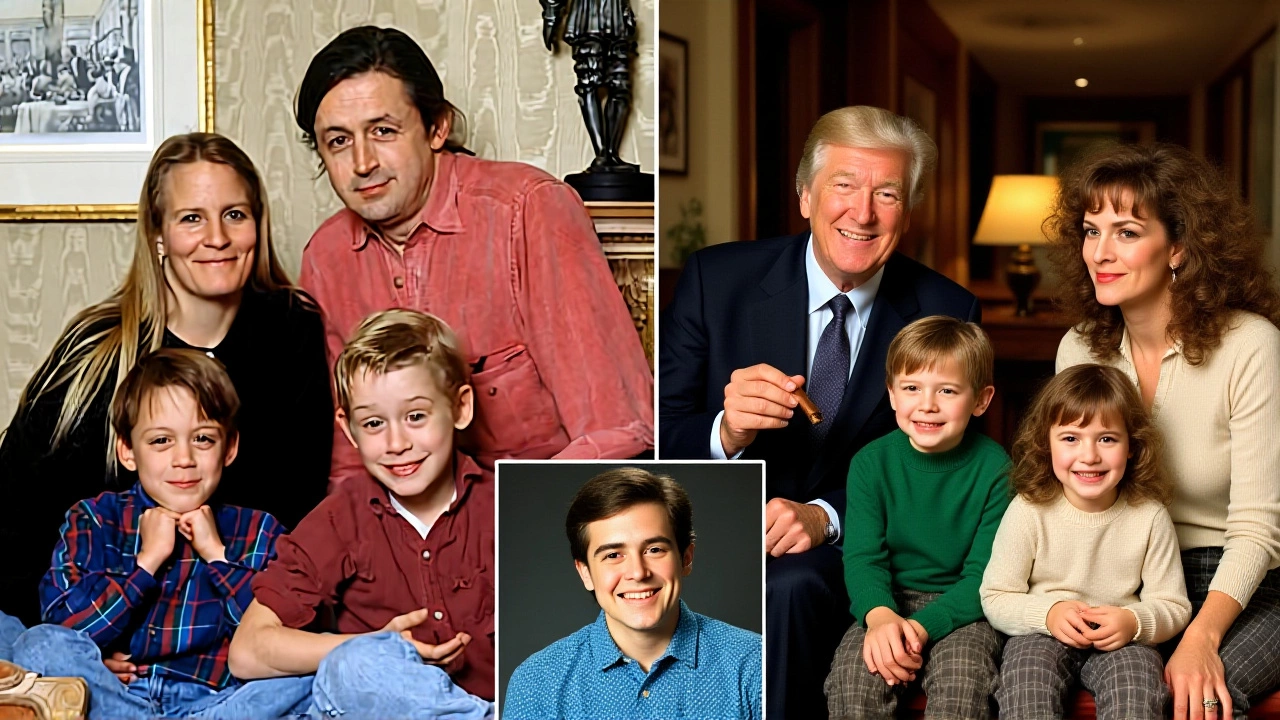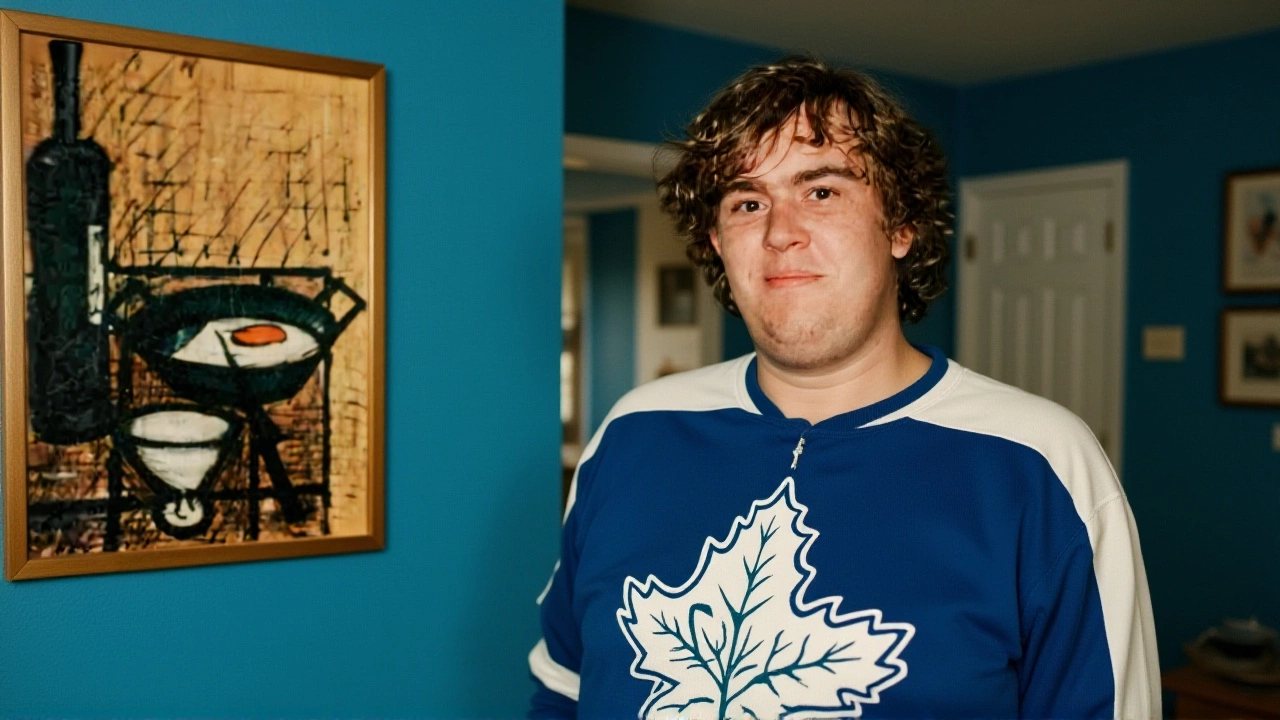When John Franklin Candy died in a hotel room in Durango, Mexico, on March 4, 1994, the world lost more than a funny man—it lost a rare kind of soul who made strangers feel like family. A new documentary, John Candy: I Like Me, premiering at the Toronto International Film Festival Toronto on September 4, 2025, doesn’t just revisit his filmography. It pulls back the curtain on the quiet battles behind the laughter. Directed by Colin Hanks and produced by Ryan Reynolds, with Rosemary Margaret Hobor, Candy’s widow, and their children Christopher Candy and Jennifer Candy as co-producers, the film is less a retrospective and more a reckoning—with fame, with grief, and with the cost of being everyone’s favorite big guy.
A Quiet Boy From Scarborough
Born on October 31, 1950, in Newmarket, Ontario, Candy’s childhood was upended when his father died of a heart attack at age five. The family moved to Scarborough, where he lived with his grandmother. He wasn’t the class clown. He was the kid who watched, listened, and absorbed. "He didn’t talk much," says his sister in the film. "But when he did, everyone stopped." By ninth grade, he’d found his voice—in improv. At Second City in Toronto, he was painfully insecure, terrified of bombing. Yet he kept showing up. "He’d come offstage shaking," recalls former colleague Dan Aykroyd. "Like he’d just run a marathon in a snowstorm. But he’d smile like he’d won the lottery."The Weight of Being Loved
His rise was meteoric: Stripes, Planes, Trains and Automobiles, Uncle Buck. But the more people laughed, the heavier the silence became. "The hazard of this business is that it’s very unhealthy for people pleasers," says one voiceover from the film. Candy struggled with weight, anxiety, and the emotional toll of performing while drowning inside. He’d cancel shoots because he couldn’t get out of bed. He’d eat, smoke, drink—anything to quiet the noise. "He was the guy who’d bring cookies to set," says Catherine O’Hara. "And then sit in his trailer for three hours alone." Bill Murray, his co-star in Stripes, speaks with rare vulnerability: "I can’t tell you what was right about John Candy or what was wrong, but he was my friend. And I don’t want to cry, but when I see him... who are you?" Murray adds, "Nobody had bigger expectations for himself than John. And then all of a sudden it kind of jumped to a different level."Family, Forgiveness, and the Final Frame
The most powerful moments come from those who knew him best. Rosemary remembers how they met at a party—she was wearing a yellow dress, he was wearing socks with sandals. "He said, ‘You’re the only one who didn’t laugh at my shoes.’" Their children, Christopher and Jennifer, spent years compiling home videos, letters, and audio recordings to build this portrait. "We didn’t want it to be a tribute," Jennifer says. "We wanted it to be a conversation." The film’s structure is nonlinear, weaving between 1950 and 1994, between the boy who lost his father and the man who couldn’t outrun his pain. It includes clips of Candy being told, "You’ve been in more turkeys than a stuffing mix," and his quiet reply: "Well, you think what you want about me. I’m not changing. I like me."
Why This Matters Now
Despite his global fame, Candy remains oddly absent from conversations about comedy greats. In Canada, he’s a cultural icon. In the U.S., he’s often reduced to a meme or a "funny fat guy" trope. This film refuses that. It shows a man who carried the weight of being adored while fighting loneliness. "He brought joy to the world," says Martin Short, "but he never believed he deserved it." Reynolds and Hanks summed it up in a joint statement: "He wasn’t just a great actor; he was an even better person." And that’s the point. We remember the jokes. We forget the heart.What Comes Next
The documentary launches globally on Amazon Prime Video on October 10, 2025. But its impact may be felt long after. Schools in Ontario are already planning screenings for students. A new generation will see not just the man who played a talking dog or a clumsy dad—but the quiet genius who turned pain into laughter, and made us feel seen without ever saying a word.Frequently Asked Questions
Why is this documentary different from other celebrity biopics?
Unlike typical Hollywood retrospectives, John Candy: I Like Me is co-produced by his widow and children, who had unprecedented access to private letters, home videos, and audio diaries. It avoids hagiography, instead showing Candy’s self-doubt, anxiety, and emotional isolation—making his comedy feel even more courageous. The film doesn’t just celebrate him; it humanizes him.
How did John Candy’s childhood shape his comedy?
Losing his father at age five left Candy with deep-seated insecurity and a need to be liked. He later said he felt like "a guest in his own life." His humor became a survival tool—using absurdity and warmth to disarm others and mask his pain. His characters often played the lovable outsider, reflecting his own experience growing up shy in Scarborough.
Why is John Candy underappreciated in American comedy history?
Candy’s Canadian roots, his physicality, and his gentle persona made him easy to dismiss as just a "funny fat guy" in Hollywood. Unlike contemporaries like Eddie Murphy or Robin Williams, he wasn’t known for edgy material or rapid-fire delivery. But his emotional authenticity in films like Planes, Trains and Automobiles set a new standard for comedy—one that’s only now being fully recognized.
What role did Ryan Reynolds play in bringing this documentary to life?
Reynolds, a lifelong fan, personally reached out to Candy’s family after being moved by a 2022 documentary short. He used his influence to secure funding, connect with key interviewees like Bill Murray and Mel Brooks, and help shepherd the project through post-production. He didn’t appear on camera—but his passion shaped its tone, ensuring it honored Candy’s humanity over his stardom.
How did the film handle Candy’s death and its aftermath?
The filmmakers avoid sensationalism. Instead of focusing on the medical details of his heart attack during Wagons East!, they center the emotional fallout: the silence on set, the shock in Hollywood, and how his family coped. A haunting clip shows Candy’s co-star, Kathleen Turner, whispering, "He was the last person I’d expect to leave us. He made life feel safe."
What’s the legacy of John Candy in Canadian culture?
In Canada, Candy is more than a star—he’s a symbol of quiet resilience. He was the first Canadian actor to consistently headline major American films without playing a stereotype. Toronto’s Scarborough has a mural of him. Schools teach his improv techniques. And in 2024, the Canadian government officially designated his birthday, October 31, as National Comedy Day in his honor.

Trenton Whitworth
Hi, I'm Trenton Whitworth, a sports enthusiast with a passion for tennis. I've been studying and analyzing various sports for over a decade, with a particular focus on tennis. I love sharing my knowledge and insights through writing and have contributed to several publications. My goal is to help others better understand the game and inspire them to enjoy it just as much as I do. I believe that staying active and engaged in sports can lead to a healthier and happier life.